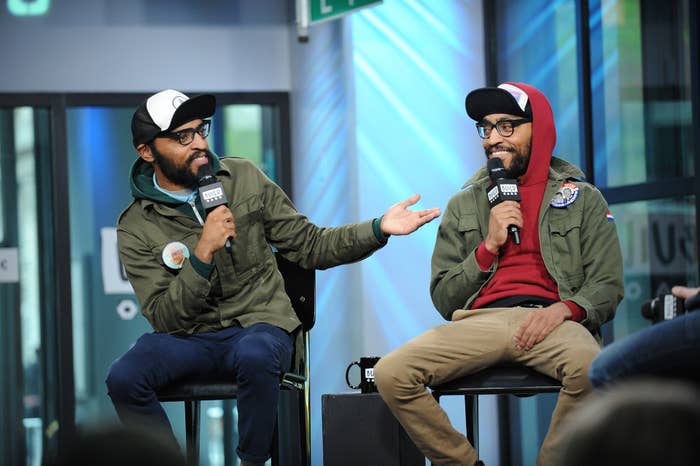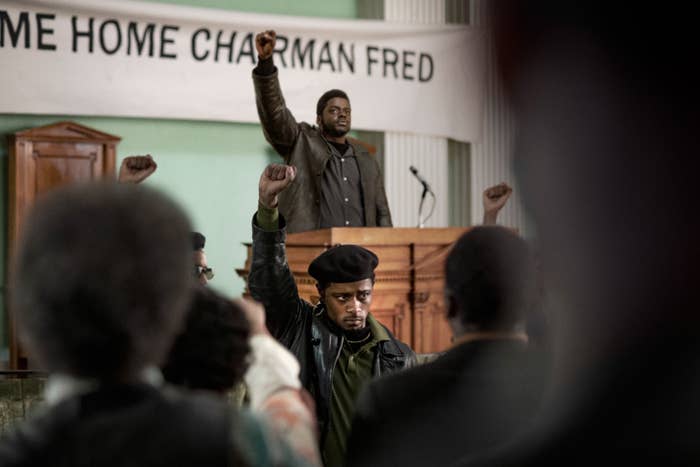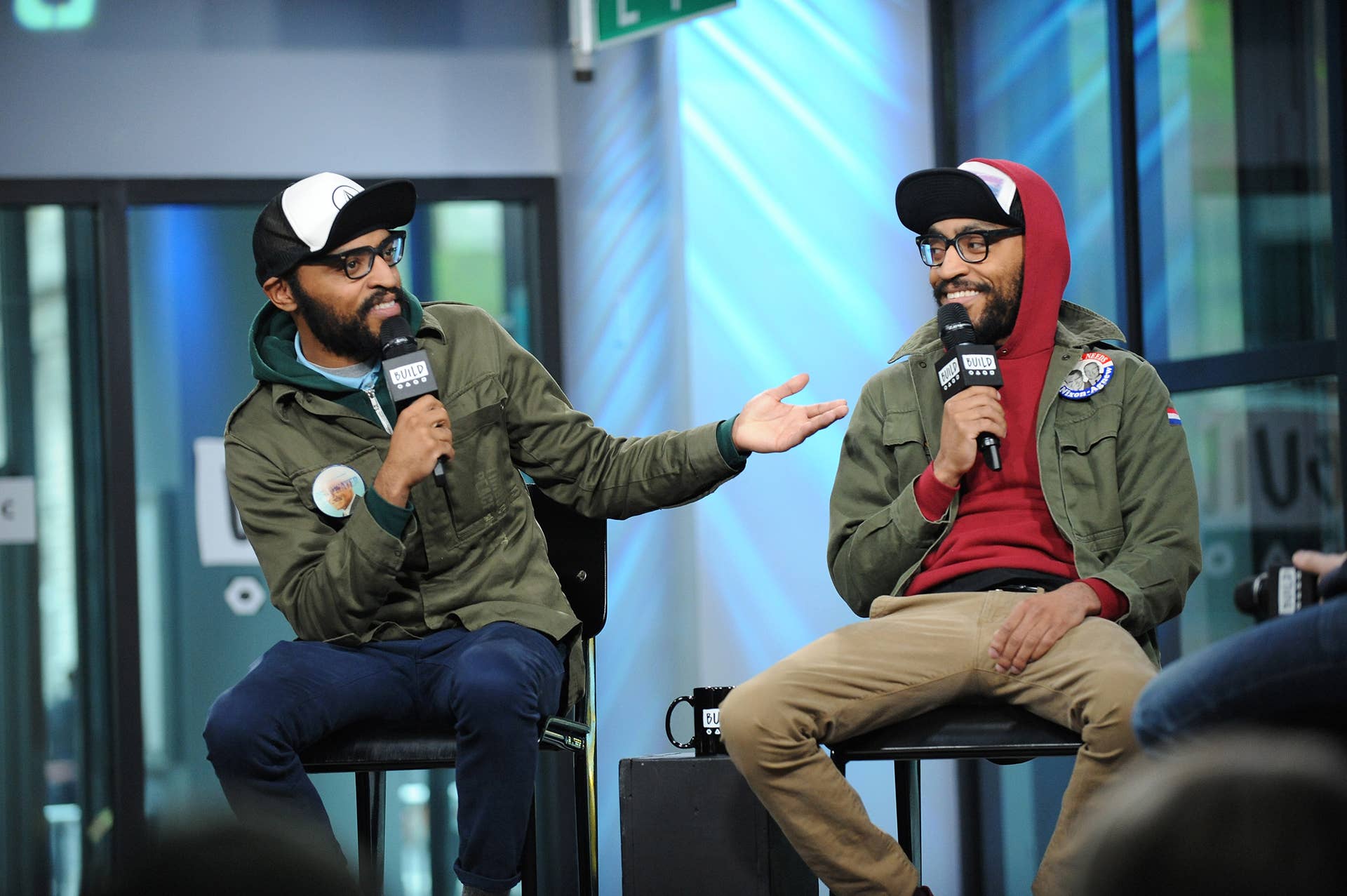
Keith and Kenny Lucas may have made their mark in Hollywood as a stoner comedy duo, but Judas and the Black Messiah may change all of that. It’s not like the Newark-born Lucas Brothers haven’t been sticking it to The Man in their comedic output; their 2017 Netflix special On Drugs was full of Richard Nixon hate. They also wrote a piece, “Our Brother Kaizen,” last summer that examines everything from the PTSD we live with just from living in the ‘hood to the police brutality we’ve had to deal with “since there have been police and Black people,” Kenny Lucas tells Complex.
While damn funny, speaking with the Lucas Brothers about their journey to Judas is surprising. There are no set ups or punchlines; if humor sneaks out, it’s natural, but you feel their eagerness to explain their next endeavors as filmmakers. Judas, which gives us a clear picture of Chairman Fred Hampton’s work with the Black Panthers through the lens of the informant who was sending info back to the FBI, is an important moment for these two. And while it’s dope that Daniel Kaluuya is getting Golden Globe nominations and the film’s Rotten Tomatoes score is at a 97 percent, the real success is having Hampton’s message become something everybody recognizes as a horrific wrong that needs to be addressed.
“To this day,” Kenny explains, “the FBI still has the building named after J. Edgar Hoover. I think that that’s a testament to how disrespectful we’ve been to Hampton’s legacy.” During a phone call with Complex, Kenny and Keith take us through the process of getting Judas and the Black Messiah from the idea stage to the screen, with some thoughts on another project they are working on, the Revenge of the Nerds reboot, as well.


